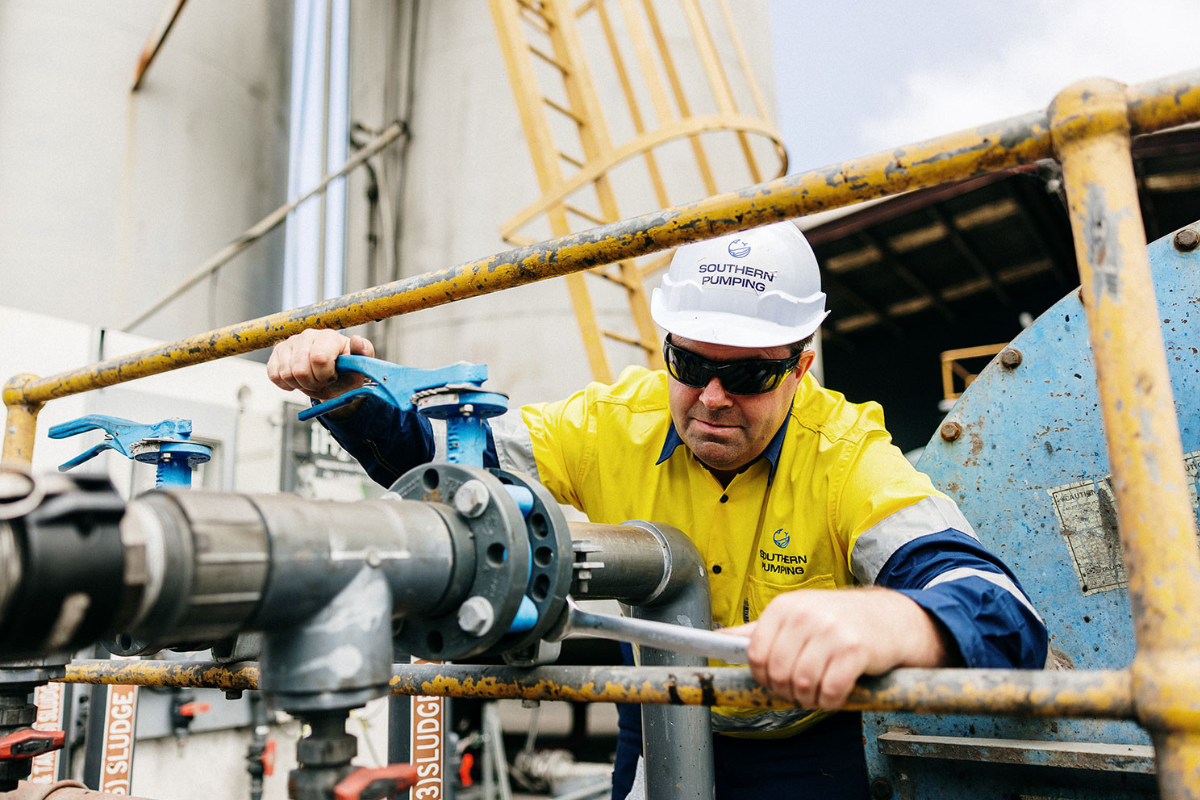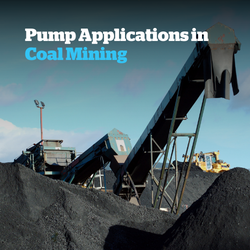Looking to extract precious minerals? The key to maximizing productivity lies in mastering the flow. The perfect pump can make all the difference in the mining industry. Whether you are operating an underground mine or an open-pit facility, having the right pumping solution is essential for efficient operations.
In this article, we delve into the world of mining pumps and unveil the secrets of choosing the perfect one for your needs. We explore the different types of pumps available, their capabilities, and the factors to consider when selecting one. From dewatering to slurry pumping, we cover it all. By understanding the latest advancements in pump technology, you can improve productivity, reduce maintenance costs, and optimize your mining operations.
Whether you are a mining engineer or a decision-maker in the industry, this article will provide you with the insights you need to make informed choices. Don't let inefficient pumping hinder your mining operations. Read on and unlock the secrets to mastering the flow and discovering the perfect pump for mining precious minerals.
Different types of pumps used in mining
The mining industry relies on various types of pumps to meet its diverse needs. Each type of pump has its unique characteristics and applications. Let's explore the most common types of pumps used in mining:
- Centrifugal pumps: Centrifugal pumps are the workhorses of the mining industry. They rely on centrifugal force to generate pressure and move fluids. These pumps are versatile and can handle a wide range of flow rates and pressures. Centrifugal pumps are commonly used for general water transfer, dewatering, and slurry pumping applications.
- Submersible pumps: Submersible pumps are designed to be submerged in the fluid they are pumping. They are commonly used for dewatering applications in underground mines and open-pit mines. Submersible pumps are highly efficient and can handle high flow rates and high heads.
- Slurry pumps: Slurry pumps are specifically designed to handle abrasive and viscous materials. They are commonly used in applications where solids and liquids need to be pumped together, such as coal mining. Slurry pumps have robust construction and are capable of handling high concentrations of solids.
- Multistage pumps: Multistage pumps are used in mining operations that require high pressure. These pumps consist of multiple impellers arranged in series, allowing them to generate high heads. Multistage pumps are often used in underground mining operations where water needs to be pumped to the surface against significant vertical lift.
- Diaphragm pumps: Diaphragm pumps are ideal for handling fluids with high solids content. These pumps use a flexible diaphragm to create pressure and move fluids. Diaphragm pumps are commonly used in underground mining operations and in situations where the pumped fluid may contain abrasive particles.
Each type of pump has its advantages and limitations. Understanding the specific requirements of your mining operation will help you choose the most suitable pump for the task at hand. At Southern Pumping we're brand agnostic, we can work with any pump make and model. Southern Pumping Specialists commitment to leading the Mining Pump field is underpinned by a full suite of support including; full workshop facilities for pump repairs and fabrication, mobile onsite service units, pump hire options, pump system design and consulting, sales of almost any brand and a large inventory of spares and crucial components and related products for industrial pumps.

Factors to consider when choosing a mining pump
Choosing the right pump for your mining operation requires careful consideration of various factors. Here are some key factors to keep in mind:
- Material characteristics: The type of material being pumped is a crucial consideration. Different minerals have different characteristics, such as particle size, abrasiveness, and viscosity. Understanding these characteristics will help you select a pump that can handle the specific demands of your mining operation.
- Flow rate and pressure requirements: Determine the required flow rate and pressure for your mining operation. This will help you select a pump with the appropriate capabilities. Consider factors such as the distance the fluid needs to be pumped, the elevation changes, and any friction losses in the system.
- Energy efficiency: Energy costs can be a significant expense in mining operations. Choosing an energy-efficient pump can lead to substantial cost savings over time. Look for pumps with high hydraulic efficiency and motors with high-efficiency ratings.
- Reliability and maintenance: Mining operations require pumps that can withstand harsh conditions and operate reliably with minimal downtime. Consider the reliability track record of the pump manufacturer and the ease of maintenance and availability of spare parts.
- Total cost of ownership: In addition to the initial purchase cost, consider the total cost of ownership over the pump's lifespan. This includes factors such as energy consumption, maintenance costs, and the pump's expected lifespan. A pump with a higher upfront cost but lower operating costs may be a better long-term investment.
There is a myriad of individual circumstances that pertain to your situation, regulatory compliance, physical environment constraints, labour and materials supply just to name a few. We’ve put together a helpful list of 11 key considerations when selecting the right pumps for your mine operations. Our expert team are available anytime to talk through your pumping specifics 1800 810 670.
.png) Underground Pumpset Concept Drawing
Underground Pumpset Concept Drawing
Mineral specific considerations
When it comes to selecting the right pump types for specific minerals, there are several key factors to consider. Each mineral type has unique characteristics that can impact pump performance and efficiency. By understanding these factors, mining operators can make informed decisions about pump selection, ensuring optimal performance and productivity. Let's explore some of the essential factors to consider.
Viscosity and Flow Rate
Viscosity is the measure of a fluid's resistance to flow. It plays a crucial role in determining the appropriate pump type for a specific mineral. Different minerals have varying viscosities, which can affect the pump's ability to move the fluid efficiently. For highly viscous minerals, such as thick slurry or paste, a positive displacement pump may be the best choice. These pumps are designed to handle high viscosity fluids and provide a constant flow rate, making them ideal for transporting thick mineral slurries.
On the other hand, for minerals with lower viscosities, centrifugal pumps are often the preferred option. These pumps use centrifugal force to move fluids and are highly efficient at handling fluids with low to medium viscosities. They are commonly used in applications where high flow rates are required, such as water pumping or handling thin mineral slurries.
Particle Size and Abrasiveness
The particle size and abrasiveness of a mineral are crucial considerations when selecting a pump type. Minerals with larger particle sizes or high abrasiveness can cause significant wear and tear on pump components, leading to increased maintenance and downtime. To combat this, it is essential to choose a pump that can withstand the abrasive nature of the mineral and effectively handle solid particles.
For minerals with large particle sizes or high abrasiveness, slurry pumps are the go-to choice. These pumps are specifically designed to handle abrasive slurries and can transport large particles without clogging or damage. They often feature robust construction and wear-resistant materials to ensure longevity in demanding applications.
For minerals with smaller particle sizes or lower abrasiveness, centrifugal pumps with closed impellers may be suitable. These pumps can handle fluids with small solid particles without clogging and are generally more cost-effective than slurry pumps. However, it's important to consider the specific characteristics of the mineral and consult with pump manufacturers or experts to ensure the right pump selection.
Corrosiveness and Chemical Compatibility
In some mining operations, the minerals being processed may be highly corrosive or contain chemicals that can react with pump materials. It is crucial to select a pump type that is resistant to corrosion and chemically compatible with the mineral being handled. Failure to do so can result in pump failure, leaks, and contamination of the processed material.
For corrosive minerals or chemicals, pumps made from corrosion-resistant materials such as stainless steel or high-performance alloys are often recommended. These materials offer excellent resistance to corrosion and ensure the longevity of the pump in challenging environments.
It's important to note that the chemical compatibility of pump materials goes beyond corrosion resistance. Some chemicals can react with certain pump materials, leading to degradation or failure. It is essential to consult with pump manufacturers or experts to ensure the pump's materials are compatible with the specific chemicals present in the mineral.
Operating Conditions and Environmental Factors
The operating conditions and environmental factors surrounding a mining operation can also influence pump selection. Factors such as temperature, pressure, altitude, and even the presence of hazardous gases or liquids can impact pump performance and reliability.
For high-temperature applications, pumps with robust sealing systems and materials that can withstand elevated temperatures are essential. Similarly, for high-pressure applications, pumps capable of handling the required pressure without leakage or failure should be chosen.
Altitude can affect the performance of centrifugal pumps due to changes in atmospheric pressure. In such cases, pump manufacturers may provide altitude correction factors to ensure accurate pump selection and performance.
Additionally, if the mining operation involves hazardous gases or liquids, it is crucial to choose pumps that meet the necessary safety standards and have proper sealing systems to prevent leaks or contamination.
Click on the tiles below to download mineral specific pump application examples.
Maximizing mining efficiency through pump selection
Selecting the right pump types for specific mineral types is crucial for maximizing mining efficiency. By considering factors such as viscosity, particle size, abrasiveness, corrosiveness, and operating conditions, mining operators can make informed decisions about pump selection, ensuring optimal performance and productivity.
Choosing the wrong pump type can result in increased maintenance, downtime, and reduced efficiency. It is essential to consult with pump manufacturers or experts to ensure the selected pump is suitable for the specific mineral and application.
Remember, each mineral type has unique characteristics, and there is no one-size-fits-all pump solution. By understanding the relationship between pump types and mineral types, mining operators can improve efficiency, reduce costs, and ultimately drive profitability in their operations.
So, the next time you're faced with the challenge of pump selection in your mining operation, refer back to this guide and make an informed decision that will maximize your mining efficiency.





